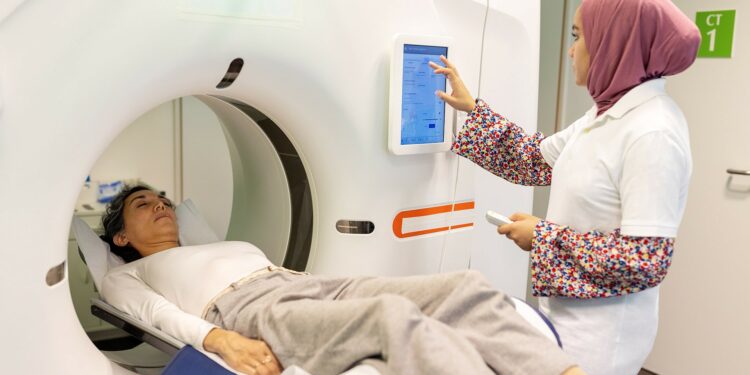[ad_1]
TOPLINE:
Thalidomide demonstrated superior efficacy in preventing the relapse of immunoglobulin G4–related disease (IgG4-RD) during a 12-month follow-up period in a placebo-controlled trial. The treatment showed promise as a steroid-sparing option for the management of IgG4-RD, with benefits outweighing the risks.
METHODOLOGY:
- IgG4-RD is a rheumatic autoimmune condition prone to relapse during remission induction and maintenance therapy, with the long-term use of glucocorticoids leading to various treatment-related side effects.
- Researchers conducted a multicenter randomized study to investigate the effects of thalidomide in preventing the relapse of disease in adult patients with active IgG4-RD who had not received treatment with immunosuppressive or immunomodulatory drugs, including glucocorticoids.
- Overall, 60 participants were randomly assigned to receive either glucocorticoids plus thalidomide or glucocorticoids plus placebo, with initial prednisone dosage of 0.6 mg/kg/d tapered by 5 mg/d every 2 weeks and discontinued within 3 months; the study was completed by 57 patients.
- The participants received either thalidomide or placebo starting at 25 mg/d orally, with a potential increase up to 75 mg/d within 1 week on the basis of their tolerability.
- The primary outcome was the rate of disease relapse at 12 months, with relapse defined as an increase in the IgG4-RD responder index score of two or more points; the secondary outcome was the remission rate of disease at 12 months.
TAKEAWAY:
- The glucocorticoids + thalidomide group had a significantly lower relapse rate at 12 months than the glucocorticoids + placebo group (13.8% vs 67.8%); the glucocorticoids + thalidomide group showed a marked reduction in the IgG4-RD responder index score as early as after the first month (P < .001).
- Both treatment groups achieved 100% response rates; however, the remission rates were higher in the glucocorticoids + thalidomide group than in the glucocorticoids + placebo group (75.8% vs 32.1%).
- Compared with the baseline levels, a decrease in serum IgG4 levels (P < .001) and a recovery in C3 levels (P = .019) were noted in the glucocorticoids + thalidomide group; however, no such differences were noted in the glucocorticoids + placebo group.
- The proportion difference in disease relapse and moderate adverse events was 0.541 (95% CI, 0.291-0.705) for the glucocorticoids + thalidomide group and 0.138 (95% CI, −0.008 to 0.306) for the glucocorticoids + placebo group, giving a number needed to harm vs number needed to treat of 8 vs 2.
IN PRACTICE:
“This study indicated that thalidomide can be a potential therapeutic option for IgG4-RD [IgG4-RD],” the authors wrote.
SOURCE:
This study was led by Yu Chen, Tongji Hospital, Tongji Medical College, Huazhong University of Science and Technology, Wuhan, China. It was published online on February 16, 2025, in Annals of the Rheumatic Diseases.
LIMITATIONS:
The sample size was relatively small, and this study lacked a strategy to predict the therapeutic response of thalidomide. This study warranted large-scale studies incorporating systematic and computational biology approaches to advance the development of precise medications to treat IgG4-RD.
DISCLOSURES:
This study was supported by grants from the National Natural Science Foundation of China and Tongji Hospital Clinical Research Flagship Program. The authors declared no competing interests.
This article was created using several editorial tools, including AI, as part of the process. Human editors reviewed this content before publication.
[ad_2]
Source link : https://www.medscape.com/viewarticle/thalidomide-may-prevent-igg4-rd-relapse-without-steroids-2025a10004wu?src=rss
Author :
Publish date : 2025-02-26 10:55:20
Copyright for syndicated content belongs to the linked Source.














